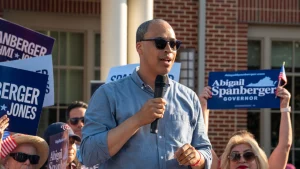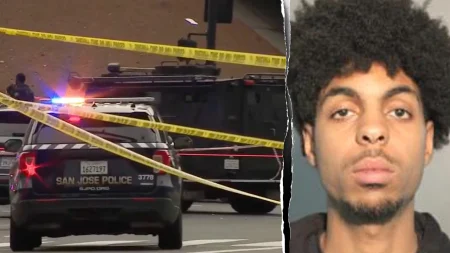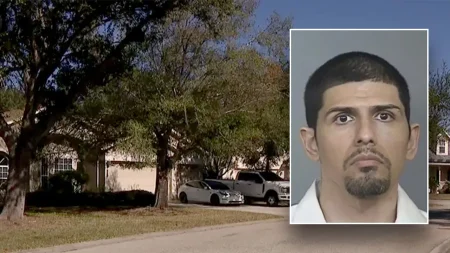The Painful Decision: How a Family Helped Stop a Suspected Assassin
In an extraordinary turn of events following the assassination of Charlie Kirk, the family of suspect Tyler Robinson took the rare and difficult step of turning him in to authorities. This decision, described by human behavior specialist Susan Constantine as “almost unheard of,” reflects a profound moral choice that forever changes their lives. “The fact that they stood up, did what was right, even as difficult as it was – their own son, their own blood, to think that their own blood was capable of carrying out such a heinous act. It has got to be a weight that none of us could ever imagine on our shoulders,” Constantine told Fox News Digital. The 22-year-old Utah resident was arrested after his family member reached out to authorities following Robinson’s apparent confession. Sources indicate Robinson’s father played a crucial role in his surrender, working with a minister who had law enforcement connections to convince his son to turn himself in. This painful family intervention may serve as a model for others confronting radicalization within their homes.
The investigation revealed troubling details about Robinson’s mindset and preparation. Authorities found that the rifle believed to be used in the assassination contained ammunition inscribed with antifascist messaging. According to Utah Governor Spencer Cox, family members reported that Robinson had “become more political in recent years,” even mentioning Kirk’s upcoming appearance at Utah Valley University during a family dinner before September 10. Constantine pointed to the broader implications of this case, suggesting there are deeper influences behind such violent acts: “There are roots to this evil. And there are people that know where the roots of the evil are. Because it’s those roots that are starting to spin and to indoctrinate and create all of this violent anger and hatred.” She shared her personal experience with her own daughter being recruited into radical ideology, emphasizing that vulnerable youth “don’t always come from broken homes” but can be quickly radicalized through social media and other influences.
The warning signs before violent acts often exist but go unrecognized or unreported. Constantine, who works with FBI consultants analyzing language patterns associated with violent offenders, explained that potential threats frequently leave digital or verbal clues before committing violence. “In other cases I’ve worked, it was written all over the wall,” she stated, emphasizing the importance of “pre-threat analysis” that she calls “pre-bang” – identifying dangerous behavior before violence occurs. This tragic case highlights the critical need for better training for law enforcement and schools to recognize these warning signs earlier. Constantine was struck by the timing of Kirk’s assassination, noting she “was literally in a meeting about this when I found out about Kirk. It was surreal.” Her expertise suggests that proper intervention might have prevented this tragedy if the right systems had been in place to identify Robinson’s alleged radicalization.
With Robinson now in custody, investigators will focus on uncovering his motivations and potential connections through interviews and interrogations. Constantine described how this process typically unfolds: “First of all, you start with the interview. You want to get him to open up and tell the story from beginning to end without interruption.” Following this, authorities will likely shift to a more direct interrogation approach, potentially emphasizing the serious consequences he faces. “The death penalty is on the table and somebody is going to be held accountable for it,” Constantine observed, adding that “the fact he (Kirk) was killed in such a horrific manner, an assassination, I think it’s going to be very hard-pressed that a judge would give him any leniency or any sort of mitigating circumstances around it.” This legal process will unfold as authorities work to understand not just the mechanics of the crime, but the ideological drivers behind it.
This assassination represents a broader crisis of youth radicalization and grievance-based violence in America. “It’s so mind-numbing that we’re here and that we have so many youth that are so confused and bitter and hateful and rising up, because we see a lot of this in this younger generation,” Constantine reflected. The case forces society to confront difficult questions about what’s driving young people toward violent extremism and how families, communities, and institutions can better respond. The Robinson family’s painful decision to turn in their son demonstrates both the heartbreaking personal costs of radicalization and a model of moral courage in the face of unimaginable circumstances. Their choice likely saved lives by preventing potential further violence, while also ensuring accountability for the assassination of Kirk.
For all the political divisions in contemporary America, Constantine believes Kirk’s legacy transcends partisan boundaries. “That’s what I thought that Kirk did beautifully, was he was bringing everyone together and talking about truth,” she said. The tragedy, in her view, goes beyond the loss of a conservative voice – it represents the silencing of someone who was “the right person for the job… the right voice to be able to speak truth into youth and to open up the dialogue.” As the investigation continues and the legal process unfolds, this case stands as a sobering reminder of the consequences of political violence and the critical importance of families, communities, and institutions working together to identify and intervene before radicalization turns deadly. The painful decision made by Robinson’s family, while deeply personal, ultimately served the broader public good in the face of a terrible tragedy.








